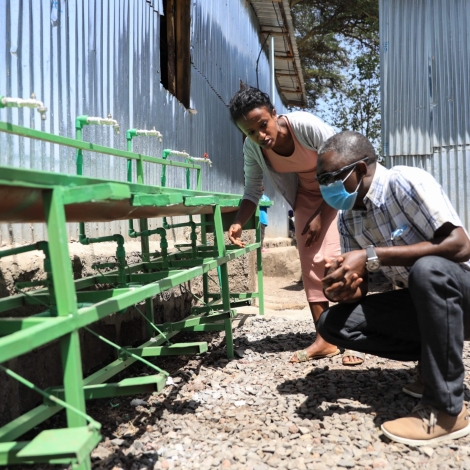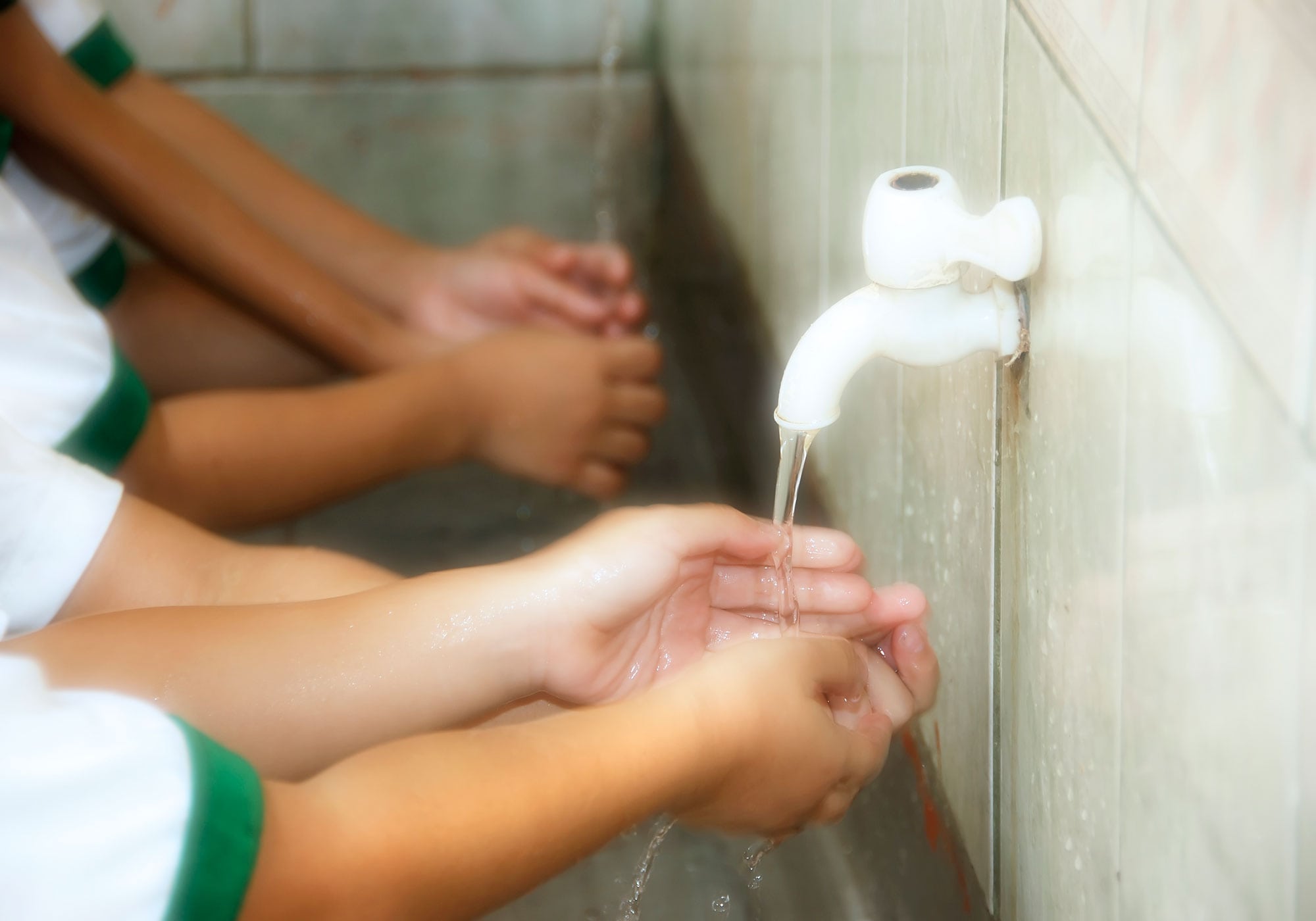One of the newer sad facts about poverty is that it makes the coronavirus harder to contain. Three billion people do not have access to handwashing facilities at home, making it difficult to perform on the basic preventive measures to protect against infection. Global aid organizations are aware of the fact. This week, I had the fortune to attend the launch of the United Nations SDG (Sustainable Development Goal) 6 Global Acceleration Framework. The event aimed to mobilize UN agencies, governments, civil society, private and all other stakeholders to drive progress on SDG6, Safe Water and Sanitation for All.
In more normal times, this event may have carried less weight. However, the urgency shared by all the panelists makes one realize the inextricable link between the pandemic and need for safe, potable water and sanitation for all.
Thinking about discussions held at the conference and their place in these times, I’ve noted five takeaways on the links between WASH and COVID-19.
It does not matter if you live in a rural or an urban setting
COVID-19 has proved to be an unfortunate reality check for the already vulnerable communities that were facing a lack of water and sanitation services globally. More than half of the world’s 8 billion people lack access to safe sanitation. We are recommended to wash our hands several times a day, however 3 billion people lack basic handwashing facilities.
I contributed to a recent study on water, climate and the migration crisis as a reviewer. The study attempts to explain how to assess water-migration interlinkages as water and climate crises are disproportionately impacting vulnerable individuals and groups. These may include water pollution, inability to meet daily water needs, climate extremes and limited options to income generation, especially for those who largely depend on land and water resources for survival. We witnessed this first-hand in the migration labor crisis in India.
Even the most basic services and products can help save millions of lives
Setting up community handwashing stations, while observing social distancing, can help save millions of lives in water-parched areas, especially in Africa, Asia, remote reaches of Latin America and even for the at-risk communities in developed countries such as the United States. Engineering for Change’s Solutions Library offers many products as simple as tippy-tap, which can be set up with no excessive investment. These can be combined with innovative hand-soap providing initiatives, such as Ecosoap Bank, which is trying to get soap to vulnerable communities. These relatively small initiatives have the potential to scale and save lives.
Healthcare facilities and schools are at high risk
One of the wisest steps that the leaders across the globe have taken was to shut down schools to prevent the spread of pandemic. It has been a very welcome move, as 47 percent of schools in developing countries lack handwashing facilities with soap and clean water. Even more horrifying, however, is that a similar statistic has been calculated for healthcare facilities. About 43 percent of the world’s hospitals and clinics do not have basic handwashing facilities. It is comparatively easy to close schools in the midst of a pandemic, but impractical to close healthcare facilities.
Nature-based solutions can alleviate some of the damage caused by the pandemic
Global orders to stay at home have led to increased deforestation and poaching in some of the world’s ecologically vulnerable areas, research suggests. Environmental destruction could lead to new outbreaks of disease that jumps from animals to people. Similarly, protecting the environment could decrease the risk of new outbreaks. Sustainable WASH infrastructure reduces the risk of environmental degradation and reveals another link between WASH and COVID-19. This collection of articles does a good job of explaining what COVID-19 has to do with nature.
Revenue for WASH businesses has fallen, but the sector has jumped into action
One of the pandemic’s success stories is the action that the global WASH sector taken in response. The sector has implemented knowledge sharing schemes, idea exchanges and innovative financial mechanisms to solve some of the problems of the pandemic. In urban settings, revenues have declined as people struggle to pay for their utilities. However, service providers are taking steps to maintain services through the Covid-19 pandemic. Organizations such as ROCKBlue and the World Bank’s Global Water Security and Sanitation Partnership are advising water utilities on their financial resilience. In rural settings, most multi-lateral and bi-lateral agencies in partnerships with national governments, and ultimately community-based leaders and groups, are trying to help populations in need.
These takeaways amount to a mix of problems, insights and even some solutions. A key point that emerges, however, is that meeting the SDGs, and the world’s WASH needs in particular, was a worthy goal before the pandemic. But now it is more important than ever.


No Comments.